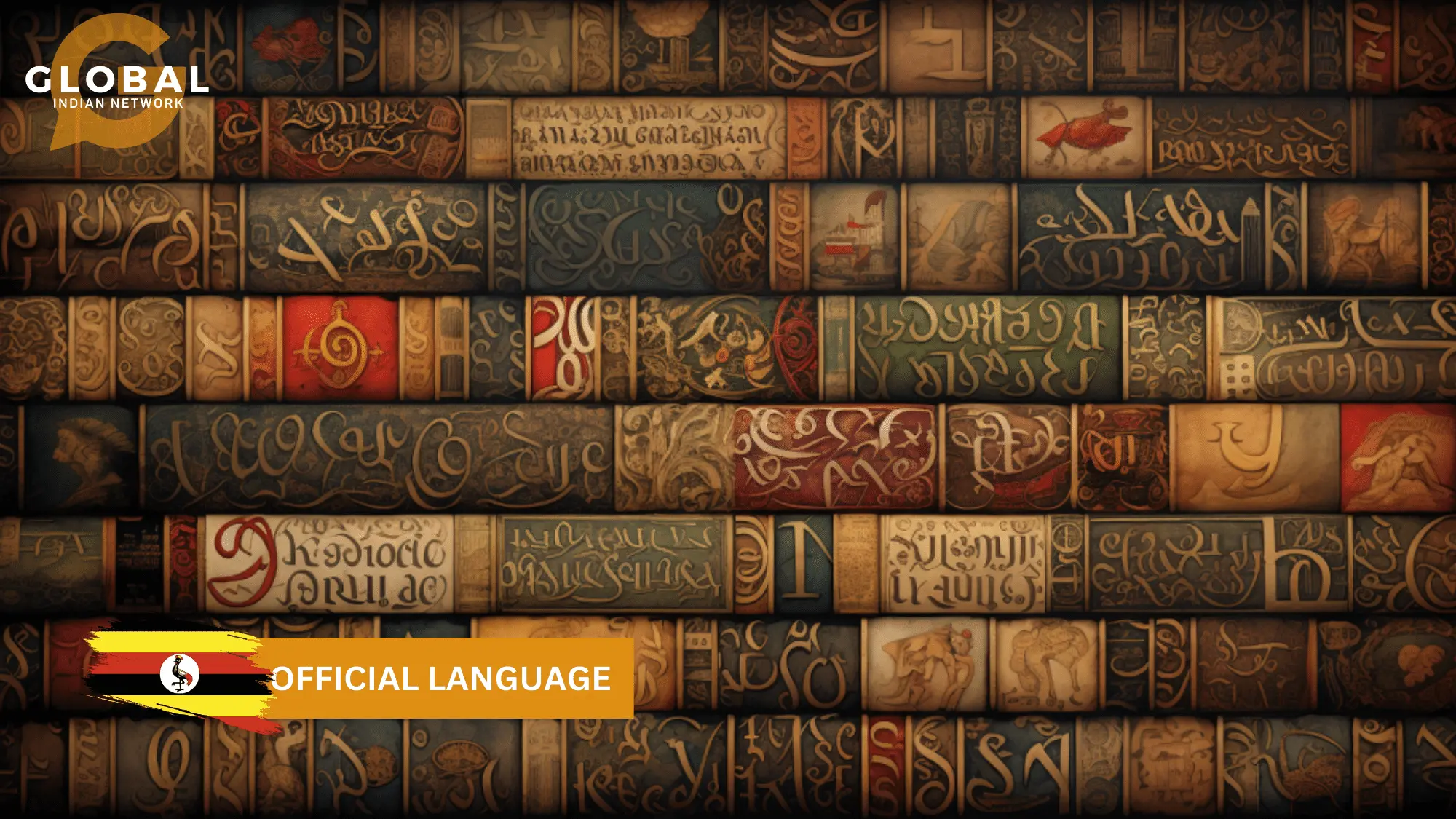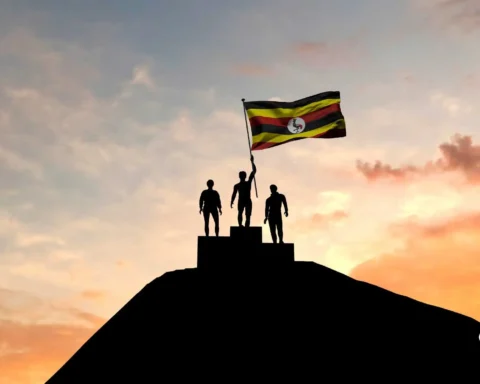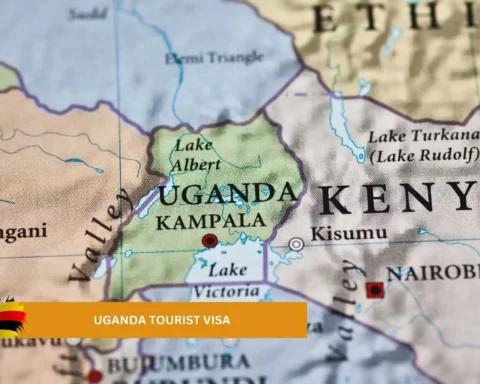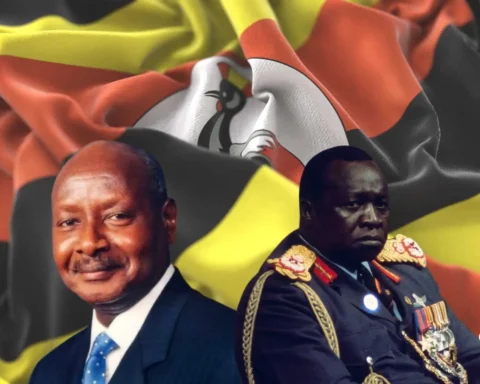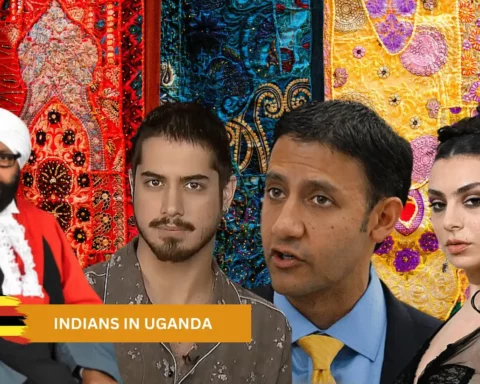What is the official language of Uganda? The diverse Languages of Uganda tell a fascinating tale of this East African nation's rich cultural heritage and history. Uganda's official language, English, serves as a unifying force in a country that boasts an array of ethnic groups and languages. This linguistic diversity is a testament to Uganda's multicultural identity, where over 40 distinct indigenous languages are spoken, reflecting the nation's deep-rooted traditions and unique cultural tapestry.
In this exploration, we will not only uncover the official language of Uganda but also delve into the intriguing world of these local languages, each with its own story to tell and its place in shaping the country's rich heritage.
Table of Contents
What is the Official Language of Uganda?
The official language of Uganda is English, a defining feature of this East African country. English serves as Uganda's official and national language, mirroring the linguistic landscape of many African nations that were once colonised by British colonial authorities. This linguistic legacy has positioned English as a common language that bridges communication gaps among the diverse ethnic groups within Uganda.
In Uganda, over 40 indigenous languages, including Central Sudanic and Bantu languages, are spoken by various communities. However, English takes centre stage in formal communication, governance, and education. English enjoys official status and is the medium of instruction in secondary schools and higher educational institutions.
The intricate nature of Uganda's language policy becomes evident in its approach to primary education. Indigenous languages are predominantly employed as the language of instruction in primary schools. This approach aligns with Uganda's recognition of the cultural importance of preserving native languages while fostering an environment where English proficiency is emphasised for broader access to opportunities.
In everyday social interactions, Ugandan citizens often navigate conversations using a combination of indigenous languages and English, depending on the context and the language proficiency of the speakers. This bilingualism is a testament to Uganda's rich linguistic diversity.
Beyond facilitating communication, English plays a pivotal role in political power structures, as proficiency in the language is often a requirement for high-ranking government positions. The significance of English in Uganda's political landscape underscores its status as more than just a language; it's a tool of influence and access to decision-making positions.
English stands as the Official Language of Uganda, acting as a common thread connecting the various linguistic communities within the country. Uganda's language policy recognises the value of preserving indigenous languages while promoting English proficiency, reflecting the delicate balance between heritage and modernity in this African nation. Beyond education and communication, English holds sway in the corridors of political power, shaping the nation's governance and decision-making processes.
Languages of Uganda
Uganda, situated in East Africa, is a quintessential African country characterised by its remarkable linguistic diversity. Among the Languages of Uganda, one finds a rich tapestry of indigenous African languages reflective of the nation's cultural heritage. However, it's essential to note that the influence of external languages, such as Swahili, has also left an indelible mark on Uganda's linguistic landscape.
In East Africa, Swahili languages hold a unique position, with Swahili being recognised as a lingua franca in the region. Uganda is no exception in East Africa, as Swahili has gained prominence alongside indigenous languages. This is due in part to the historical influence of South Africa in East Africa, where Swahili has served as a bridge language for trade and communication.
In the northern regions of Uganda, particularly in communities speaking the Lussese language, African languages with deep-rooted histories thrive. These tribal languages passed down through generations, are essential components of the cultural fabric of these communities. They are native languages spoken by those who have long called this region their home.
While Uganda's linguistic diversity is a source of cultural richness, it has also been associated with violent conflicts in some instances. Differences in language and culture have sometimes played a role in disputes between various ethnic groups. Yet, they have also fostered dialogue and understanding among these communities. The language between speakers plays a major role in determining the level of understanding based on context.
The Languages of Uganda are not just academic subjects but living languages spoken by native speakers who cherish their linguistic heritage. In this African country, the diverse linguistic tapestry is a testament to the nation's cultural richness and the importance of language in shaping identity and heritage.
In Uganda, while Swahili languages have a notable presence, English holds the official status and is the medium of instruction in schools and government. This aligns with the broader trend in East Africa, where English is often the language of governance and education. However, body language and non-verbal communication play a crucial role in daily interactions beyond the formal language policy. These unspoken cues, gestures, and expressions transcend linguistic boundaries and serve as a means of understanding and connection among Uganda's diverse population. In essence, Uganda's linguistic landscape is a dynamic blend of the formal and informal, where spoken languages, official policies, and body language converge to create a rich and intricate tapestry of communication.
English as a Unifying Force
English, a unifying force in Uganda, is pivotal in bridging linguistic and cultural divides in this East African nation. While Uganda boasts a multitude of tribal languages, English is a common medium of communication, particularly in government, education, and formal settings. This linguistic unifier has proven especially valuable in Northern Uganda, where numerous tribal languages are spoken. In this region, characterized by its linguistic diversity, English facilitates inter-ethnic communication, fostering greater understanding and cohesion among communities.
Uganda's breathtaking natural landscapes, including Mount Elgon National Park, Murchison Falls National Park, and Rwenzori Mountains National Park, attract visitors across Central Africa and the globe. English is a shared language among these diverse tourists, enabling them to explore and appreciate the country's natural wonders. Moreover, English is a vital tool for communication between local guides and international visitors, enhancing the overall experience.
Within Uganda's cultural fabric, English is essential to formal interactions. In addition to tribal languages, Uganda is home to various kingdoms, such as the Buganda Kingdom and the Tooro Kingdom. While these kingdoms have their languages and traditions, English is a unifying language for official functions and communications, allowing for effective governance and administration.
English stands as a unifying force in Uganda, connecting people across Northern Uganda's tribal languages and facilitating communication in the nation's vibrant Central African context. It serves as a common language in Uganda's remarkable natural settings and is an invaluable tool for interactions between diverse communities and international visitors. Moreover, English is crucial in bridging cultural divides among Uganda's rich tapestry of kingdoms and ethnic groups.
Diverse Linguistic Landscape
Uganda's linguistic landscape is nothing short of diverse and captivating, particularly evident in regions like Northern Uganda, where an array of tribal languages are spoken. This Central African nation, with its enchanting natural wonders like Mount Elgon National Park, Murchison Falls National Park, and the Rwenzori Mountains National Park, is a melting pot of linguistic and cultural diversity. Mount Elgon National Park, Murchison Falls National Park and the Rwenzori Mountain National Park could be well-referred to as key regions that would determine the country's landscape in many ways.
In Northern Uganda, various ethnic groups communicate in their respective tribal languages, reflecting the region's rich heritage. However, in the backdrop of this diversity, the unifying power of English and the Buganda Kingdom's Luganda language becomes apparent. These languages bridge inter-ethnic communication, fostering understanding and cooperation among Northern Uganda's communities.
While words may differ, the universality of body language transcends linguistic barriers. In Uganda and other parts of the world, non-verbal cues are pivotal in daily interactions. The expressions, gestures, and subtle movements communicate emotions, intentions, and meanings that transcend language. In this realm of unspoken communication, people from diverse backgrounds find common ground, reinforcing the idea that language goes beyond words.
In the heart of this cultural and linguistic tapestry, Uganda thrives as a nation that celebrates its diversity and recognizes the value of inter-ethnic communication. The blend of spoken languages, including tribal and regional languages like Luganda, is complemented by the unspoken language of body language, making Uganda's linguistic landscape a vibrant and harmonious mosaic.
Conclusion
The official language of Uganda, English, plays a pivotal role in this East African nation's cultural and linguistic landscape. While Uganda boasts a rich diversity of indigenous languages and dialects, English stands as a unifying force, facilitating communication across various ethnic groups and serving as the medium of instruction in educational institutions. The coexistence of official and native languages, along with the recognition of the cultural significance of these languages, highlights Uganda's commitment to preserving its heritage while embracing the advantages of a common official language. This linguistic balance reflects Uganda's dynamic identity, where linguistic diversity and unity harmoniously coexist.
FAQs
Which language is mostly spoken in Uganda?
English is the most widely spoken language in Uganda and serves as the country's official language.
How many languages does Uganda speak?
Uganda is a linguistically diverse nation with over 40 indigenous languages spoken across the country.
Is Hindi spoken in Uganda?
Yes, Hindi is spoken in Uganda, primarily among the Indian diaspora community and individuals of Indian descent.
Is Luganda an official language in Uganda?
Luganda is not one of the official languages of Uganda, but it is widely spoken and serves as a significant regional language, particularly in the Buganda Kingdom and the central region of Uganda.




